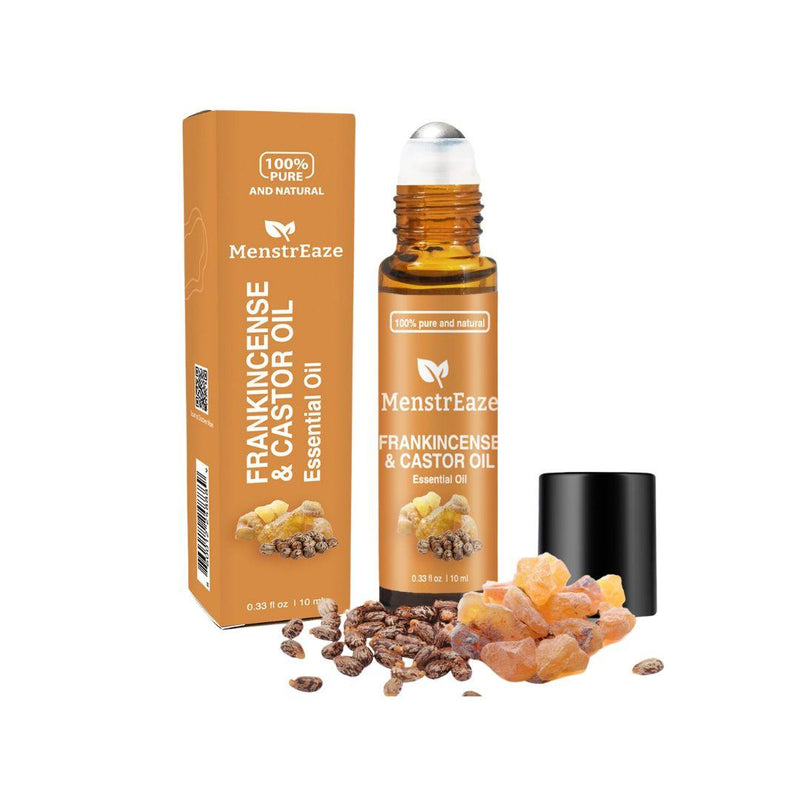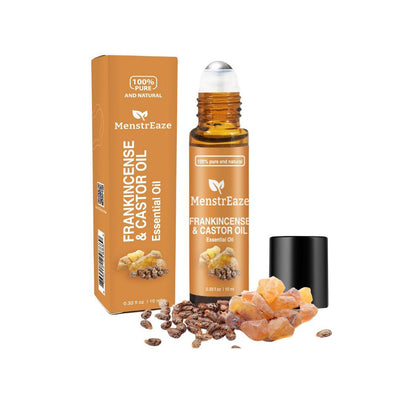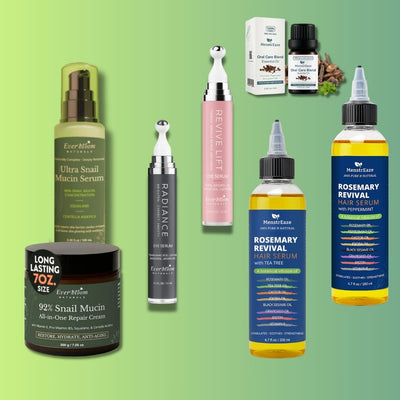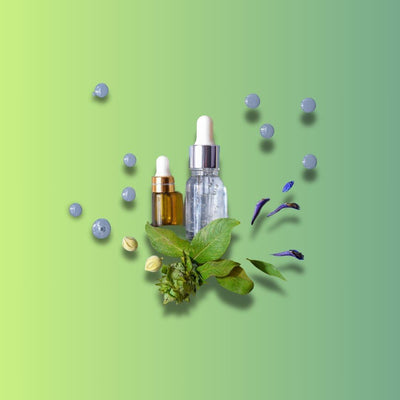Acne vulgaris is a prevalent skin condition that affects individuals across various age groups, manifesting as pimples, blackheads, and whiteheads, often accompanied by inflammation. As interest in natural and home-based skincare solutions continues to grow, many individuals seek remedies beyond conventional treatments. Among these, castor oil has garnered attention as a traditional remedy for a variety of skin concerns, including acne. This blog post aims to delve into the claims surrounding castor oil as an acne treatment, exploring its potential benefits, mechanisms of action, recommended usage, scientific evidence, potential risks, and expert opinions.
The Buzz Around Castor Oil: What are the Potential Benefits for Acne?
Castor oil is frequently cited for its potential to benefit acne-prone skin, with proponents highlighting several key properties. One of the most commonly mentioned benefits is its purported antibacterial action. Given that bacteria on the skin can contribute to the clogging of pores and subsequently lead to acne, the antibacterial properties of castor oil are seen as a significant advantage [1]. This suggests that applying castor oil might help reduce the bacterial load on the skin, potentially preventing or mitigating acne breakouts.
Furthermore, castor oil is believed to possess anti-inflammatory capabilities. Acne lesions are often characterized by redness, swelling, and inflammation. The anti-inflammatory properties attributed to castor oil could therefore help to soothe these inflamed pimples and reduce overall skin irritation associated with acne [1]. This reduction in inflammation could lead to a less severe and less noticeable acne flare-up.
Counterintuitively, an oil is also discussed for its moisturizing and cleansing properties in the context of acne treatment. The fatty acids present in castor oil, particularly ricinoleic acid, are thought to contribute to the skin's hydration and may also aid in cleansing the skin and promoting healthy pores [2]. The idea is that by keeping the skin moisturized, castor oil might help to balance oil production, which can be a contributing factor to acne. Additionally, its cleansing action could help remove impurities that clog pores.
How Might Castor Oil Work Against Acne? Exploring the Mechanisms:
The potential benefits of castor oil for acne are often attributed to its unique chemical composition. Ricinoleic acid, a monounsaturated fatty acid, constitutes a significant percentage (83-88%) of castor oil [2]. This fatty acid is recognized for its bactericidal and antifungal properties, suggesting a direct way in which castor oil might combat the microorganisms associated with acne development [4]. By fighting the spread of bacteria like Propionibacterium acnes, which can proliferate in sebum-rich environments, castor oil may help purify acne-prone skin [4]. Its antifungal properties could also be beneficial, as fungal infections can sometimes contribute to skin inflammation and breakouts [4].
Another factor that makes castor oil appealing for acne treatment is its low comedogenic index of 1 [4]. This rating indicates that castor oil is unlikely to clog pores, a crucial consideration for individuals prone to acne, as clogged pores are a primary cause of blemishes. By not contributing to pore blockage, castor oil may help prevent the formation of new pimples and blackheads [4]. Furthermore, the oil's properties might assist in dislodging existing bacteria and impurities that are trapped within the pores, thereby contributing to clearer skin [4]. However, some sources suggest that the thick consistency of castor oil might still lead to clogged pores in certain individuals [16].
Beyond directly targeting bacteria and avoiding pore blockage, castor oil may also play a role in regulating sebum production [4]. Acne is often linked to an overproduction or thickening of sebum, which can clog pores. By helping to balance sebum levels, castor oil could potentially reduce the likelihood of pore blockage and subsequent breakouts.
Introducing a Convenient Way to Experience Castor Oil: The Frankincense & Castor Essential Oil Roll-On
While the discussion around castor oil often involves its direct application or DIY remedies, it's also increasingly found as a key ingredient in formulated skincare products designed for ease of use and targeted benefits.An example of such a product is the Frankincense & Castor Essential Oil Roll-On for Wrinkles and Dark Circles (10 ml).

This particular product combines 100% Pure Castor Oil with Steam-Distilled Frankincense Essential Oil, aiming to deliver specific skin benefits. Its formulation highlights the nourishing and hydrating properties often associated with castor oil. According to its description, this roll-on is designed to:
- Deeply hydrate and revitalize the skin, promoting a radiant and youthful appearance (supporting overall Skin Health).
- Offer a gentle, skin-friendly formula that is non-GMO, toxin-free, and suitable for all skin types, including delicate areas like under the eyes.
- Provide a cooling and refreshing sensation upon application, thanks to its stainless steel rollerball, which can also help enhance absorption and reduce puffiness.
The product emphasizes its 100% natural and chemical-free composition (no parabens, synthetic fragrances, or additives).The roll-on applicator is presented as a precise, mess-free way to apply the oil to targeted areas such as the under-eye area, nose, and neck for hydration and soothing delicate skin. Its compact and leak-resistant design makes it a travel-friendly option for skincare on the go.
To use, one would gently roll it onto the under-eye area, neck, or targeted facial spots. While this specific product is marketed for wrinkles and dark circles, its base of castor oil aligns with the oil's reputation for moisturizing and skin-soothing capabilities discussed earlier. It serves as an example of how castor oil is being incorporated into convenient, ready-to-use formats for various skincare needs, leveraging its beneficial properties for overall skin health.

Putting it to Practice: How to Use Castor Oil for Acne at Home:
For those interested in trying castor oil for acne, several application methods are recommended. One common approach is the direct application of a small amount of castor oil to the affected areas [7]. Due to its thick consistency, it is often suggested to use it as a spot treatment on individual pimples or as an overnight mask on larger areas [3]. Some recommend diluting the castor oil with a carrier oil like olive oil or coconut oil to make it easier to apply and absorb [2].
Another popular method is the castor oil steam cleanse. This involves using steam to open the pores, followed by the application of castor oil to cleanse them [5]. DIY masks combining castor oil with other ingredients known for their benefits against acne are also frequently suggested. These include mixtures with olive oil, coconut oil (which contains lauric acid known to fight acne-causing bacteria), tea tree oil (another potent antibacterial agent), turmeric (with antibacterial and anti-inflammatory properties), baking soda (for its anti-inflammatory and antiseptic qualities), and jojoba oil (which can help regulate sebum production) [2].
When starting to use castor oil, it is generally advised to apply it less frequently, perhaps a few times a week, to observe how the skin reacts [5]. Before applying it to the entire face, performing a patch test on a small, inconspicuous area like the inner arm is crucial to check for any adverse reactions [5].
The Scientific Verdict: What Does the Research Say About Castor Oil and Acne?
While anecdotal evidence and traditional use suggest potential benefits of castor oil for acne, the scientific evidence specifically evaluating its effectiveness is limited [2]. There is a general lack of robust clinical trials that directly investigate the impact of castor oil on acne vulgaris. This absence of specific research makes it challenging to definitively claim its efficacy as an acne treatment.
However, some research does support the individual properties attributed to castor oil. Studies have indicated that castor oil possesses anti-inflammatory and antimicrobial properties [1]. A 2022 article suggests that health experts believe castor oil has these properties, which may help treat and prevent acne [7]. Similarly, 2022 research found that castor oil has antimicrobial and anti-inflammatory properties and can help decrease pimples [2]. A 2018 in vitro study on rats found that ricinoleic acid, the main component of castor oil, may promote wound healing due to its anti-inflammatory and pain-relieving properties [7]. While these findings support the individual mechanisms by which castor oil might benefit acne, they do not constitute direct evidence of its effectiveness in treating the condition in humans.
Navigating the Risks: Potential Side Effects and Precautions:
Despite its natural origin, the topical use of castor oil for acne is not without potential risks. Some individuals may experience skin irritation, including redness, itching, and rashes [2]. Allergic reactions, such as contact dermatitis, are also possible, especially for those with sensitive skin or pre-existing skin conditions like dermatitis [2]. Therefore, performing a patch test before widespread use is strongly recommended [2].
While some users find castor oil moisturizing, it can be overly drying for others [21]. This drying effect can potentially disrupt the skin's pH balance and paradoxically lead to an increase in oil production, which could worsen acne [21]. Furthermore, despite its low comedogenic rating, the thick consistency of castor oil has been reported by some to clog pores, leading to blackheads, whiteheads, or acne outbreaks, particularly in individuals with oily or acne-prone skin [13]. It is important to remember that castor oil is not a clinically proven acne treatment, and any perceived improvements might be due to the placebo effect [13]. Pregnant women should avoid using castor oil without consulting their doctor [8].
Expert Insights: What Dermatologists and Skincare Professionals Think About Castor Oil for Acne:
Many dermatologists and skincare professionals express skepticism regarding the use of castor oil as a primary treatment for acne [9]. A board-certified dermatologist states that castor oil is not an acne treatment, and there are no research trials supporting its use for this condition [24]. They advise sticking to treatments prescribed by a dermatologist [24]. Another dermatologist notes that while castor oil has anti-inflammatory and antimicrobial properties that might support acne clearance, it is very sticky and viscous, making it challenging to apply [24]. They also point out that castor oil and its derivatives are already widely found in many skincare products [24].
Some experts acknowledge the potential moisturizing benefits of castor oil, which can help with dryness and irritation, indirectly supporting acne clearance when used alongside conventional treatments [9]. However, concerns remain about its thickness and potential to clog pores, with many dermatologists erring on the side of caution and advising patients with acne-prone or congested skin against using it [9]. Overall, the consensus among many skincare professionals is that while castor oil might offer some skin benefits, there are far better and more scientifically proven treatments available for acne [9].
Does One Size Fit All? Castor Oil for Different Types of Acne:
Given its anti-inflammatory properties, castor oil might theoretically offer more benefit for inflammatory types of acne, such as papules and pustules, which are characterized by redness and swelling [1]. The reduction in inflammation could help soothe these lesions. However, for severe acne or cystic acne, which often involves deeper, more painful lesions, castor oil is unlikely to be a sufficient treatment and may not be effective [8]. These more severe forms of acne typically require prescription-strength medications and professional dermatological care.
Individuals with oily and acne-prone skin should exercise particular caution when considering castor oil. Its thick consistency raises concerns about potentially clogging pores and exacerbating existing acne [16]. While some with oily skin report success, others experience breakouts, highlighting that individual skin reactions can vary significantly [22].
Choosing Your Oil Wisely: Different Types of Castor Oil and Which to Pick for Acne:
Several types of castor oil are available, each with slightly different characteristics. Cold-pressed castor oil is extracted from castor bean seeds without the use of heat, a process that helps preserve its natural nutrients and antioxidants, making it a generally preferred choice for skincare [7]. Jamaican black castor oil (JBCO) is produced by first roasting the castor beans before pressing them, which gives it a darker color, a smoky, nutty scent, and a higher pH level due to the presence of ash [33]. This higher pH is believed by some to enhance its cleansing properties. Other types include yellow castor oil and organic castor oil, with organic options being favored by those seeking a more natural and environmentally friendly product [33].
For facial use and potential acne treatment, cold-pressed or organic castor oil might be the most suitable options due to their purity and retention of beneficial compounds [7]. JBCO could be considered for its potentially stronger cleansing action, but its higher pH and stronger scent might not be preferred by everyone. Ultimately, the best type of castor oil for an individual's skin and acne will depend on their personal preferences and how their skin reacts to the oil.
|
Feature |
Regular Castor Oil (Yellow) |
Cold-Pressed Castor Oil |
Jamaican Black Castor Oil |
|
Extraction Method |
Usually pressing, may involve chemicals |
Pressing without heat |
Roasting beans before pressing |
|
Color |
Light yellow |
Light yellow |
Dark brown to black |
|
Scent |
Mild |
Mild |
Smoky, nutty |
|
Nutrient Retention |
May be lower |
Higher |
Includes ash |
|
pH |
Neutral |
Neutral |
Higher (alkaline) |
|
Purported Benefits |
Moisturizing, some anti-inflammatory |
Higher nutrient content, moisturizing, anti-inflammatory |
Potentially stronger cleansing, moisturizing, anti-inflammatory |
|
Best Use for Acne |
General use, patch test recommended |
Preferred due to purity and nutrient retention |
May be tried for its cleansing properties, patch test recommended |
Conclusion: Weighing the Evidence on Castor Oil for Acne:
In conclusion, castor oil possesses properties such as antibacterial and anti-inflammatory actions that, in theory, could be beneficial for managing acne. Anecdotal evidence and traditional use suggest that some individuals find it helpful for reducing breakouts and soothing inflamed skin. However, the scientific evidence specifically supporting the effectiveness of castor oil as a direct treatment for acne is currently limited. While research acknowledges its beneficial properties, robust clinical trials focusing on acne are lacking.
Potential risks associated with topical castor oil use include skin irritation, allergic reactions, and the possibility of clogged pores, particularly for those with sensitive or oily skin. Expert opinions from dermatologists often lean towards caution, recommending proven acne treatments over relying solely on castor oil. Some acknowledge its potential as a supplementary remedy due to its moisturizing and anti-inflammatory properties, but concerns about its thickness and lack of strong scientific backing persist.
While some individuals with inflammatory acne might find castor oil helpful, it is unlikely to be sufficient for severe or cystic acne. When choosing a type of castor oil, cold-pressed or organic options are generally preferred for facial use due to their purity. Ultimately, individuals considering castor oil for acne should perform a patch test, monitor their skin's reaction carefully, and consult a dermatologist for persistent or severe acne. Castor oil should not be seen as a replacement for established medical treatments but might be explored as a complementary approach by some. More research is needed to definitively determine the efficacy and safety of castor oil for acne.









